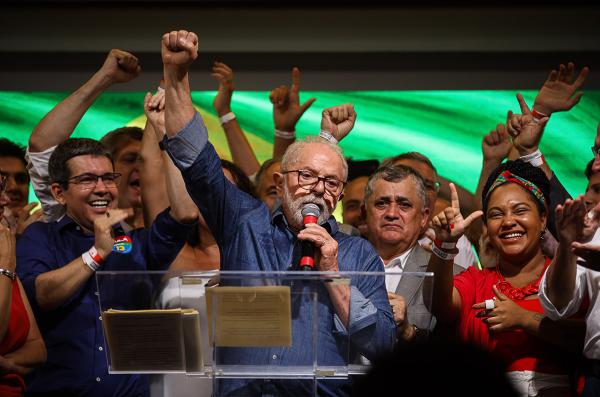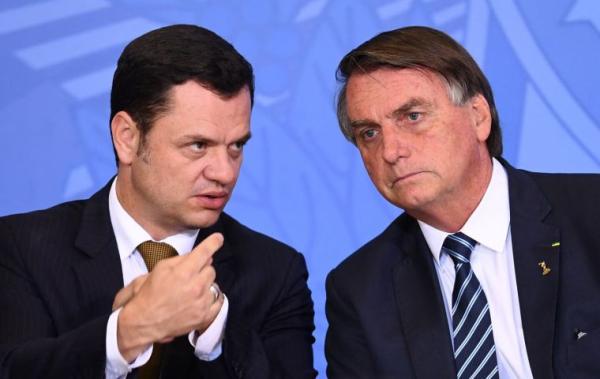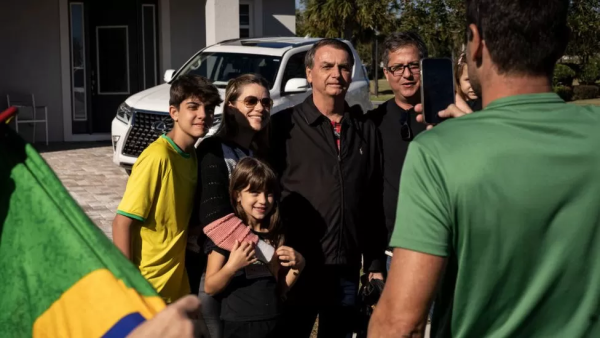January 8th: Political Polarization in Brazil

By: Ella Meyer, CLAS student intern, Spring 2023

On January 8th, 2023, supporters of Brazil’s former president Jair Bolsonaro stormed Brazil’s Praça dos Três Poderes, which houses the presidential palace, Congress, and Supreme Court in the capital city of Brasília. The rioters demanded that the results of the 2022 election be overturned and Bolsonaro be reinstated as president. This attack is the direct result of years of political polarization which were exacerbated by the election.

The 2022 election was a highly contentious contest between two controversial figures: Bolsonaro and Luiz Inácio Lula da Silva. Bolsonaro won his first term as president in 2018 after running on a right-wing, conservative nationalist platform by promising to tackle corruption and crime and increase economic growth. Throughout his term, Bolsonaro weakened gun laws, degraded protections for the LGBTQ+ community and reproductive rights, and cut federal spending on education.
Luiz Inácio Lula da Silva, or Lula, has a complicated history in Brazilian politics. He was previously elected president twice in 2002 and 2006. During his presidency, Brazil experienced unprecedented economic growth from a commodity and oil boom which helped lift 20 million people out of poverty. When he left office in 2010, Lula had an approval rating above 80%. However, he soon became subject to a corruption investigation that revealed a kickback scheme inside his party and government. Lula was convicted in 2017 of money laundering and corruption and was sentenced to 22 years in prison. He was released in 2019 after the Supreme Court annulled his charges after uncovering bias in his case, which allowed him to run for president in 2022.
During Lula’s campaign, he promised to increase Brazil’s minimum wage, expand Brazil’s welfare system and conservationist policies in the Amazon, abolish the public spending cap, and increase taxes on the wealthy. Lula also promised to reverse Bolsonaro’s anti globalist actions and return Brazil as a supporter of regional multilateral institutions.

The election ushered in unprecedented political violence. Multiple Lula supporters were killed by Bolsonaro supporters and there were several reports of Lula supporters attacking Bolsonaristas during rallies. In 2022, the Observatory of Political and Electoral Violence in Brazil tracked 214 cases of politically motivated violence, including 45 alleged homicides, which is up by 23% from last year. The violence greatly affected the population with 2 in 3 Brazilians scared they will become victims of political violence. Lula condemned the election violence, but Bolsonaro initially refused, even after one of his supporters murdered a Lula supporter. However, after another murder was committed by his supporters, Bolsonaro said he regrets any deaths that are politically motivated and he should not be blamed for the violence. Bolsonaro has a history of violent rhetoric; he encouraged his followers to shoot the petralhada, a slur for members of the Workers Party (Lula’s party), said the military dictatorship should have killed more people, and that only a civil war would create real change in Brazil.
After Bolsonaro lost to Lula, he attacked the credibility of the election by claiming there was a software bug in the voting machine which made it difficult to verify the votes. An independent review found there was a bug, but it didn’t affect the results. Despite this, Bolsonaro’s campaign filed a request to nullify about 60% of the votes which would overturn the election in his favor. The courts refused and fined Bolsonaro’s party for the request.
Bolsonaro has a pattern of discrediting elections. He previously said election officials count the votes in a secret room so they could manipulate the results. In 2018, he falsely claimed hackers attempted to steal the election from him but failed. Before the 2022 election took place, Bolsonaro had implied multiple times that he would not accept the results, which held true. He eventually agreed to a peaceful transition of power, but continued to tell his supporters that he was working to find alternatives.

Bolsonaro’s history of violent rhetoric and discrediting elections came to a head on January 8 when a mob of Bolsonaro supporters attacked the Praça dos Três Poderes. His supporters used metal police barricades to gain entry to all three buildings where they destroyed the furniture and windows. Following the attack, Bolsonaristas blocked busy roads in Sao Paulo, set tires on fire, and attempted to block access to oil refineries in other states. Electrobras, a Brazilian energy company, is investigating if there’s a connection between the attack and the collapse of two of its transmission towers.
It took the Brazilian security forces over 5 hours to clear the buildings. Afterwards, 1500 people were detained with 527 arrested, 599 released, and an unknown number still remain in police custody. Currently, security forces are facing accusations of collusion between them and the rioters, because they knew of the attack at least a week in advance but failed to act.
According to Lula, there is footage of police officers shaking hands with rioters and rioters patting multiple officers on the back. Brazil’s presidential communication minister, Paulo Pimenta, believes that the main door to the Congress building remaining intact is a sign of collusion. The claims are exacerbated by the closeness of Bolsonaro and the military during and after his presidency. A study carried out by the Brazilian Public Security Forum found “that between 50 and 60% of the police force were Bolsonaro sympathizers”. Another study found that 38% of police officers “interacted in pro-Bolsonaro digital environments and 21% were involved in more radical groups where the possibility of overturning the election was publicly discussed”. After the attack, multiple military personnel were dismissed from their posts.

In response to the attack, Supreme Court Judge Alexandre de Moraes acted swiftly against members of the Brazilian government. He temporarily removed Brazil’s Federal District Governor, Ibaneis Rocha, and Federal District Security Secretary Anderson Torres. Torres, who served as justice minister under Bolsonaro, is facing accusations of intentionally sabotaging the security force’s ability to respond. Torres, who was in Florida at the time of the riot, has repeatedly denied these accusations. However, his home was searched and the federal police found a draft decree proposing to overturn the October election. Moraes also arrested the head of Brasilia’s military police, Fabio Augusto Vieira, citing his failure to ensure the proper security forces were in place.

Bolsonaro is facing legal repercussions for his role in this attack. Currently, he is facing 12 requests for investigation by the Superior Electoral Court (TSE) and an investigation by federal prosecutors for his claims that Brazil’s election system is fraudulent. Before January 8th, Bolsonaro was under investigation in four different criminal probes. The probes allege that Bolsonaro used the federal police to protect his sons, spread lies about the election, and created disinformation while he was president. According to Brazilian law, the current sitting president must be convicted by the Supreme Court to be arrested, but once the president leaves office, he can be arrested and tried by lower courts. If found guilty on any of these charges, he will be ineligible to run for office in the future. As of now, Bolsonaro is living in Florida, so he must be extradited back to Brazil to face charges. The extradition process can take years and there is a chance the US courts will not agree that Bolsonaro’s political crimes warrant extradition.
The 2022 election and the January 8th riot beg the question, where does Brazil go from here? Lula is inheriting not only a hyper-polarized Brazil, but also a country that has reached its federal spending limit and elected its most conservative Congress since the end of the military dictatorship in the 1980s. Bolsonaro’s party now controls nearly a fifth of the two chambers of Congress and its party chief has already said they will oppose Lula’s government. While there’s no clear answer, Lula must find a way to unite the country and lead Brazil forward.
Further reading:
- Brito, Ricardo, and Gabriel Araujo. “Analysis: Brazil’s Bolsonaro Faces Legal Risks after Losing Immunity.” Reuters, 4 Jan. 2023. www.reuters.com, https://www.reuters.com/world/americas/brazils-bolsonaro-faces-legal-risks-after-losing-immunity-2023-01-04/.
- Nicas, Jack, et al. “How Bolsonaro Built the Myth of Stolen Elections in Brazil.” The New York Times, 25 Oct. 2022. NYTimes, https://www.nytimes.com/interactive/2022/10/25/world/americas/brazil-bolsonaro-misinformation.html.
- Polglase, Katie, et al. “‘Command Your Troops, Damn It!’ How a Series of Security Failures Opened a Path to Insurrection in Brazil.” CNN, 14 Jan. 2023, https://www.cnn.com/2023/01/14/americas/brazil-congress-riots-timeline-intl-latam/index.html.
